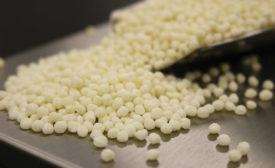Home » Keywords: » milk proteins
Items Tagged with 'milk proteins'
ARTICLES
Innovations in lactose-free, flavors and UHT milk facilitate market demand.
Read More
Research on milk’s full nutritional potential
Bioactive peptides and milk proteins promote immunity, bolster cognition.
June 28, 2023
Choose between milk and whey proteins
Milk proteins and whey proteins serve different functional purposes as ingredients
October 7, 2019
Making the case for dairy proteins
Plant-based alternatives do not have the same protein benefits as dairy foods
September 24, 2019
Optimize the performance of dairy ingredients in yogurt
Start by determining whether a milk protein or a whey protein ingredient will fit your needs
September 12, 2019
Milk proteins make you strong inside
Industry communicates the nutritional and functional superiority of dairy protein
September 4, 2019
When dairy met soy: How dairy and plant-based proteins can work together
There is plenty of room in the growing protein category for dairy-based and plant-based sources. In fact, there are good reasons to formulate with a blend of dairy and plant proteins.
August 4, 2017
Stay ahead of the curve. Unlock a dose of cutting-edge insights.
Receive our premium content directly to your inbox.
SIGN-UP TODAYCopyright ©2025. All Rights Reserved BNP Media.
Design, CMS, Hosting & Web Development :: ePublishing















